Every minute, 1 million plastic bottles are purchased around the world. And less than 10 percent of those are recycled, leaving the majority to litter the earth. Providing guests with drinking water is of paramount importance to ensuring a safe and memorable adventure, but our global dependence on single-use plastic bottles has come at a high cost — to businesses and the planet.
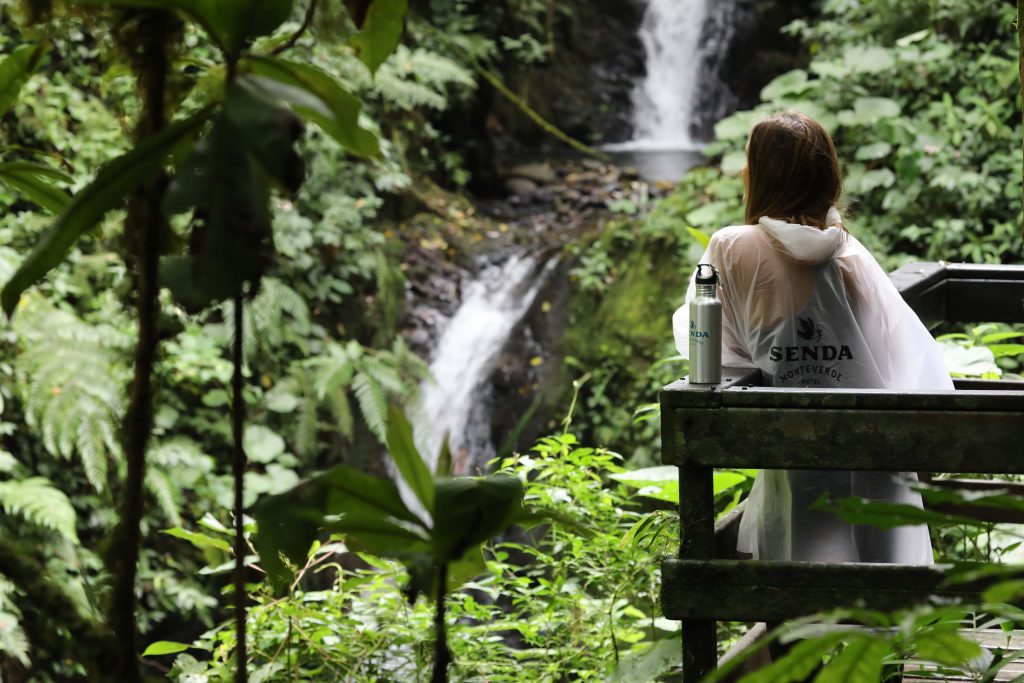
The adventure travel industry is perfectly positioned to lead the way and inspire others to break the plastic bottle habit. Here are some battle-tested tips from fellow adventure companies for eliminating single-use plastic bottles from your tours and business operations:
Put Your Fears to Rest
Change can be intimidating and it’s natural to feel some anxiety at the outset. Before you get others on board, you need to first have faith — in your cause, your team, and your guests.
“Lots of people initially told us guests want a plastic bottle that is sealed so they know the water is clean,” said Nabil Tarazi, founder and managing director of EcoHotels, the company that operates the award-winning Feynan Ecolodge in Jordan.
But he didn’t let others’ doubts deter him. In 2010, Feynan became the first hotel in Jordan to eliminate single-use plastic water bottles. Mineral water is provided in locally made clay jugs in every room and available at filling stations in the reception and dining areas.
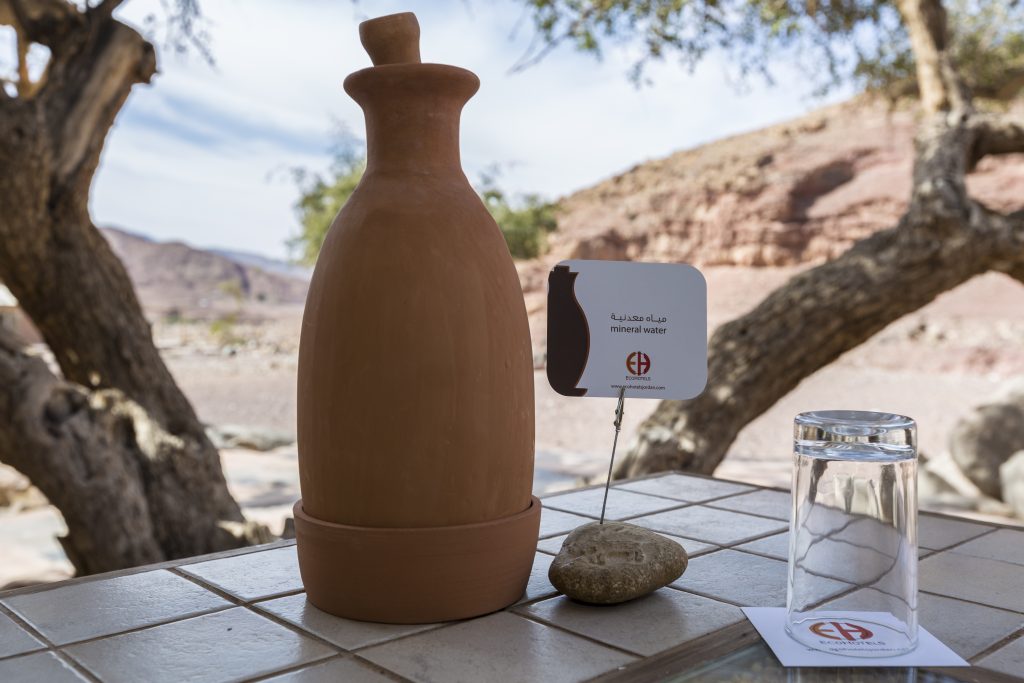
The concern that guests will be wary without sealed plastic bottles is understandable but perhaps, outdated. “That argument can be put to rest,” Tarazi said, “provided [travelers] trust the operator or hotel.”
Lizzie Farren, managing director of Nomad Tanzania, echoes the sentiment that mutual trust is essential. “The conversation surrounding waste on our planet, and in particular plastic, has become a global topic,” Farren said. “We need to trust that we can challenge our clients to trust us when it comes to safe drinking water.”
Getting started might be easier than you think, as Manav Khanduja, co-founder and managing director of Pugdundee Safaris in India, discovered. “We started with removing bottled water and slowly removed all single-use plastic except in supplies (mostly bulk packaging),” he explains. “The team was happy as long as they had good alternatives to offer to guests.” Rather than resisting the new plastic-free policies, the Pugdundee team embraced it. “Most of the staff felt proud in being part of the change.”
Identify Alternatives
These suppliers are proving that even in destinations — like India, Jordan, and Tanzania — where tap water is unsuitable for consumption, single-use plastic bottles are not the only option. If you identify alternatives and make them easily accessible, you can eliminate the temptation to reach for single-use plastic bottles.
“We no longer provide plastic water bottles,” said Russel Binks, managing director of Tswalu Kalahari, South Africa’s largest private game reserve. “All guests and staff are given a stainless steel bottle on arrival, and we have [drinking water] dispensers at both camps.”
Tswalu is not alone; eco-minded operators and properties around the world — including Nomad Tanzania, Pugdundee Safaris, Jaya House in Cambodia, Galapagos Safari Camp in Ecuador, and Cayuga Collection properties in Central America — are increasingly providing free-of-charge reusable bottles and water refill stations to guests.
In destinations where clean drinking water is unavailable or in short supply, suppliers are turning to creative solutions. “We invested in a water purification plant that we use to purify drinking water through reverse osmosis,” said Calvin Cottar, owner of Cottar’s 1920s Safari Camp in Kenya. “We also provide our guests with refillable stainless steel water bottles, thereby preventing 60,000 one-liter plastic bottles from ending up in the landfill each year.”
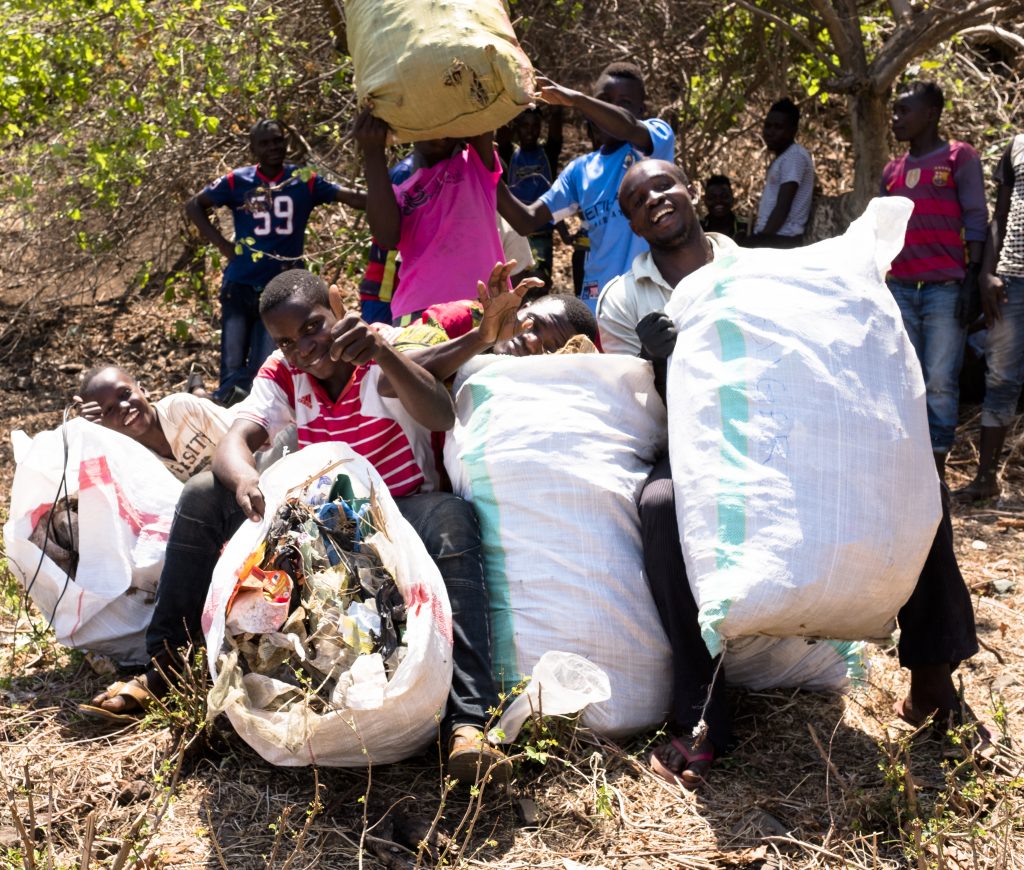
In Zambia, luxury Tongabezi Lodge uses a customized purification plant and a bottling system that, according to managing director Vanessa Parker, saves around 20,000 plastic water bottles per year and provides recycled water for irrigation and feeding the wildlife dam.
Communicate, Educate, Inspire
Building a purification plant and providing reusable bottles may not be in everyone’s budget. Fortunately, there are other easy to implement low to no-cost solutions.
One of the most affordable, simple, and effective strategies is communication.
“Before every Intrepid trip, our team advocates for travelers to reduce plastic waste by packing a reusable shopping bag, a reusable straw, and a reusable water bottle,” said Darshika Jones, Intrepid Group’s regional director of North America.
Meghan Casey, co-owner and administrator of family-run Chilamate Rainforest Eco-Retreat in Costa Rica, also encourages suppliers to make this kind of communication a standard part of pre-trip procedures. “The most successful strategy I’ve found [to eliminate single-use plastics] is talking to our guests before they come,” Casey said. When she sends a confirmation, she includes a note requesting guests to consider packing a reusable water bottle, coffee cup, and straw. In her experience, guests have never expressed feeling burdened; instead, they seem pleased to support the eco-efforts. “Many guests have thanked me for those recommendations,” she said. “And it is fun to see whole families show up with their reusable bottles.”
For destinations and activities where potable water may not be readily available, encourage travelers to carry filtration bottles or water purification devices, such as GRAYL, LifeStraw, and Steripen.
In addition, suppliers can educate guests on arrival. Properties like Chilamate Rainforest Eco-Retreat, Feynan Ecolodge, and Pugdundee’s lodges offer an orientation, which gives staff a chance to brief guests on eco-initiatives and water refill stations.
“Our goal is to change behaviors,” Tarazi said. Feynan staff presents a daily presentation, which includes information on environmental issues, for guests. “We want guests to start thinking about their practices,” Tarazi said. “The next time they go on a trip, maybe they will check with the tour operator and ask, ‘Do I have an option instead of disposable plastic bottles?’”
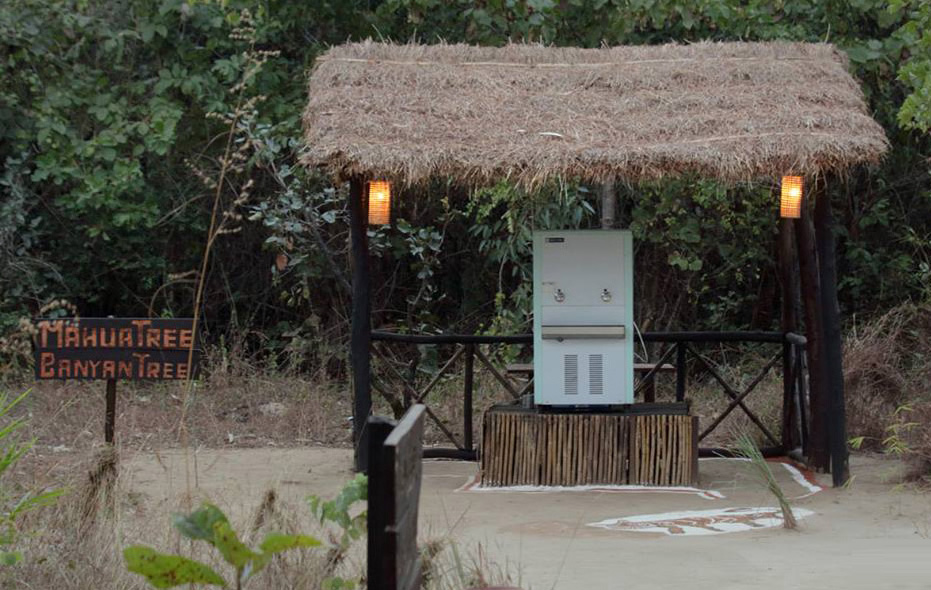
In places like the Galapagos where safe, fresh water is unavailable, Stephanie Bonham-Carter, owner of Galapagos Safari Camp, said communication and education are crucial. “We are one of the only hotels that is 100 percent freshwater-sufficient through rain collection systems,” she said. “We talk about this during guest check-in so it sets the tone for use of freshwater in this fragile environment, and they appreciate knowing where the water is coming from. It is simply pointing out the scarcity — and how we handle it — that makes guests aware of the situation, curious, and appreciative.”
Like Tarazi, Bonham-Carter believes these experiences can leave a lasting impression and inspire more eco-aware attitudes. “Most guests ask to see our ‘geomembrane’ capture system and are quite fascinated by it,” she said. “They are generally coming from an area where they don't have to think about clean, fresh water as an issue since they are fortunate to just turn on a tap [at home]. Learning about this makes them think of the issue during other travels.”
Collaborate
If your travel company hopes to eliminate single-use plastics, find allies in the industry and work toward shared goals.
Adventure travel company Wild Frontiers has taken a multi-pronged approach. In 2018, it launched a partnership with Water-to-Go to offer filtration bottles at a discounted price. “We have saved tens of thousands of throwaway plastic bottles by choosing to use refillable, filtered water bottles,” said Jonny Bealby, founder of Wild Frontiers. In an effort to further the company’s commitment to reduce plastic waste and encourage guests to pack their own reusable bottles, Wild Frontiers no longer includes bottled water on group tours.
“We are also working with our suppliers worldwide to provide water in 20-liter refillable containers from which [guests] refill their own bottles,” Bealby said.
You don’t need to reinvent the wheel or go it alone. “There are many programs that we encourage other businesses to join,” Bealby said. One program Wild Frontiers avidly supports is the Refill Not Landfill campaign, started by Christian De Boer, managing director of Jaya House River Park, and Dean McLachlan, owner of Meru Asia Retreat and JustRide Motorbike Adventures. The campaign encourages locals and travelers alike to avoid plastic bottles and carry a reusable bottle instead. Tap water in Southeast Asia is not potable, so Refill Not Landfill partners make it easy to find drinking water by providing free refill stations at locations noted on the refill map.
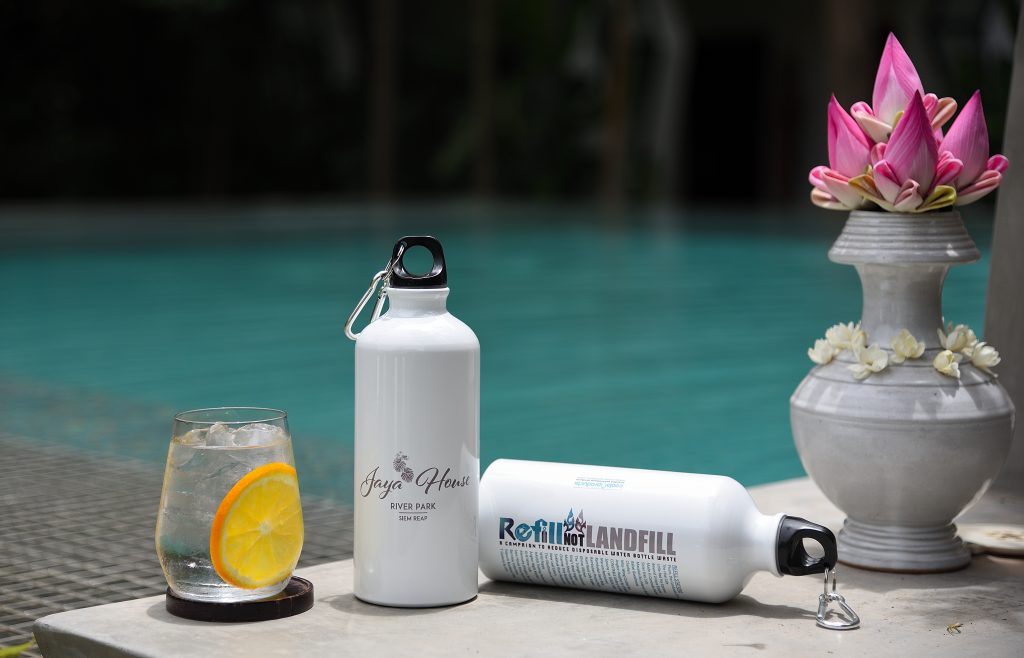
“Since its inception two years ago, they have expanded throughout Asia and are now working with other countries,” Bealby said. “They have saved more than 1 million plastic bottles.” Bealby enthusiastically encourages others in the travel industry to implement or join similar programs.
Commit
You may meet resistance and roadblocks. You will make mistakes. But don’t let them derail you from your goals.
“Don’t give up,” said Hans Pfister, president and co-founder of Cayuga Collection. When Cayuga Collection banned plastic water bottles on its properties and tours nearly 10 years ago, the change presented some challenges, particularly for tours and transfers. But, Psister said, commit to finding alternatives. “Provide reusable stainless steel bottles that guests can use during their stay. Sell them at cost. Find a company that helps bottle local water in glass and then takes the bottles back, washes them, and reuses them,” he said. “Not easy, but possible.”
Manav Khanduja shares a similar sentiment from his experience transitioning Pugdundee to plastic-free. “Commitment towards this cause is all that is needed by organizations to bring about change.” Khanduja advises teams to keep the lines of communication open. “We have our internal online [staff] groups and do a lot of exchange of information before we do any changes,” he said. “We created a banned item list, so managers are not authorized to buy items on the list like plastic spoons, plastic straws, etc. The trick is also in regular follow-ups and checking on local purchasing [to ensure no is plastic coming in], then raising it immediately if a mistake happens.”
Focus on the big picture: Creating a healthier planet where we can enjoy more adventures and less plastic. Khanduja says the glowing reviews Pugdundee receives — with 40-50 percent mentioning eco-friendly efforts — are evidence that the team’s plastic-free, planet-friendly commitment is appreciated. And, it seems, satisfied guests and a plastic-free environment are good news for the bottom line. “It's great for business,” Khanduja says, “Saves costs, happier guests, and a cleaner planet.”
This article is part of an Adventure Travel Trade Association (ATTA) initiative addressing important topics identified as critical to the protection and continued advancement of the adventure travel industry. Each initiative — eliminating plastics, women in leadership, climate action, and young leaders — has a dedicated team focused on building awareness of, advancing educational opportunities in, and creating a lasting impact on each of these areas within the adventure travel industry. We invite you to visit the ATTA’s initiatives page where you can access reports, read the latest news, participate in active projects, and join conversations within the membership community.
